INESC TEC proposes energy management using computational intelligence
Managing energy through computational intelligence, as if it were a brain – is the goal that Portugal wants to achieve and the theme discussed at the ISAP 2015 (International Conference on Intelligent Systems Applications to Power Systems, Conference and Debate), organised by INESC TEC in the city of Porto, which took place between 11 and 17 September. This was the 18th edition of the forum. The last edition took place in Tokyo.
Over 100 national and international experts known worldwide for their work in energy and intelligent systems met in Porto. Their goal was to discuss, first and foremost, whether intelligent systems are a goal, a tool, a vision or a dream, and then generate solutions to apply in Portugal, which can be exported to the entire world, to be used in utility companies and solution providers.
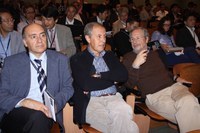
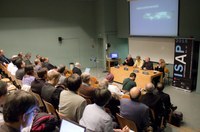
The guest of honour of this event was José Carlos Príncipe, one of the world leaders in Computational NeuroEngineering, distinguished with the title of IEEE Fellow (the most important professional title awarded by this North-American institution), professor at the University of Florida and founder of the Computational NeuroEngineering Laboratory. He opened the debate, on 14 September, with the provocation “Are cognitive architectures useful for power systems applications?”.
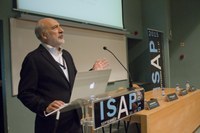
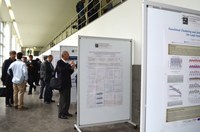
Organised by INESC TEC, ISAP welcomed experts from North-America, Japan, Brazil, Saudi Arabia, Germany, Italy, United Kingdom, Argentina, among others, who, together with Portuguese experts, tried to solve problems and promote a cross-fertilisation between two communities – the power systems community and the intelligent systems community.

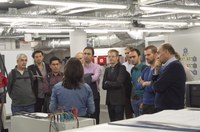
The last day of the event included technical visits to INESC TEC’s Laboratory of Smart Grids and Electric Vehicles, and to the companies EDP and EFACEC. It is important to stress that INESC TEC has a vast experience in the area of energy, having collaborated with companies such as EDP, EFACEC or REN for about 20 years. Currently with 31 ongoing projects in the area of energy, nine of them European, the institution has contributed systematically to put Portugal at the forefront in electric mobility and smart cities, represented by its Centre for Power and Energy Systems (CPES).
STATEMENTS
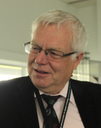
Gerhard Krost, Professor at the University of Duisburg-Essen, Germany
“Intelligent systems started being discussed in the area of computer science, and the first conference specifically dedicated to applying these techniques to power systems was organised in 1987. We have witnessed several changes in the energy sector, such as the liberalisation of electricity markets and the emergence of renewable energies, which have led researchers to develop new techniques to study and operate these systems. From the beginning we realised that smart systems could provide answers on how to deal with energy problems.
ISAP is an international event, and the goal has always been to discuss the state of development in different countries in these areas. Europe, for example, is at the forefront in the introduction of renewable energies, especially Germany, whose goal is to reduce CO2 by about 80% until 2050.”
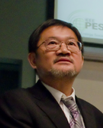
Chen-Ching Liu, Professor at Washington State University, USA
“The goal with this conference is to take new technologies to the power systems area. Traditionally, power systems depend on problems that are really well formulated. Intelligent systems can provide a set of tools to deal with problems which are not very well formulated. By searching and analysing large amounts of data, it is possible to find and offer solutions to more specific problems.
Our goal is to bring these two communities together so that we can learn with one another. This is normally the way to solve complex problems.”

Kevin Tomsovic, Professor at the University of Tennessee, USA
“I think this type of conference is important because there is greater emphasis on intelligent systems applications. Many power systems conferences are a bit broad, and that’s why ISAP is innovative, because it brings two different communities together. Moreover, in conferences like this we can focus on more concrete ideas to solve certain problems, instead of just focusing on more abstract ideas.
Large amounts of data and their transmission are clearly the motivation of the intelligent systems and power systems communities, and that is why conferences like this are so important.”


